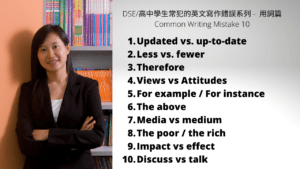IELTS Book 7 Test 4 Task 2 Writing Band 9 pdf
IELTS 7 Writing Model Essay (Free sample)
Test 4 Task 2 Question
Some people think that universities should provide graduates with the knowledge and skills needed in the workplace. Others think that the true function of a university should be to give access to knowledge for its own sake, regardless of whether the course is useful to an employer.
What, in your opinion, should be the main function of a university?
Give reasons for your answer and include any relevant examples from your own knowledge or experience.
Write at least 250 words.
Test 4 Task 2 Model Essay by an Expert One
As many countries try to increase the number of students that gain a university qualification, the experience of university is a more and more common part of the lives of recent generations. As the numbers of students grow, the role of the university in society becomes less clear. Is it just another qualification required to be competitive in the job market, or does the university remain a special place for those few who wish to contribute to the world of ideas? In this essay, I will argue that the university should not consider itself as a place where people gain skills needed for the workplace. Instead, the university should be protected as a place where the main focus is on knowledge for its own sake.
To argue that the university should not consider the needs of employers seems very strange to some. Many university themselves are changing to reflect the wishes of future employers. A number of universities in the UK have “careers services” to help students find the best possible employment opportunities. The University of Cambridge in England has recently set up a Business school, which many of its undergraduates have access to as a part of their degrees. This reflects a growing understanding of the University as a place that trains future employees. Those who support these changes believe that only in this way can the university play an important role in society. They believe that if the university does not make these changes, it would be a waste for governments to support these places of “useless” learning.
In opposition, I argue that the university should be proud of teaching things which employers consider “useless”. To educate people so that they can lead richer, fuller lives does not necessarily mean educating them to be skilled workers. Most people would consider their jobs highly important to them, but would also agree that when the work day ends there is still much more to life. The university can only appear “useless” if we consider one part of people’s lives the most important – their working day. Even employers know this, and many creative-sector companies like Google try to support their employees’ leisure activities, knowing that when people nurture other skills and interests they become happier and more dynamic in the workplace too.
If the university it so be proud of its “useless” knowledge, it does not mean fewer people should go. One of the benefits of a rich nation is its ability to support its citizens in reaching their full potential and leading happy lives. The argument that only those skills which help the economy are important does not take account of people’s entire lives. It is therefore important that we protect the university as a place where people can learn simply because they enjoy learning.
(465 words)


